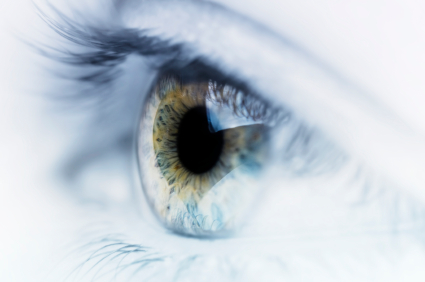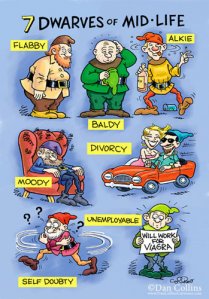The ‘look’
Do you look your age? As we all know, we are a society driven by image and appearances and often, too often in fact, the quest to look younger becomes a destination, rather than the last fork in the road.
So, what factors drive others’ perceptions as well as our own? And does a youthful appearance truly matter?
According to study published a few years ago in PLOS ONe, it matters only in the sense that perception may actually drive healthy behavior, not only in individuals but also in populations are a whole.
Numerous factors are believed or have been shown to influence how young or old a person appears, including genetics, sun exposure, smoking history, diet, weight and of course, menopausal status, leading to wrinkles, sagging jawlines, thinning lips, evenness of skin colouring and the distribution of fat in the face. It has also been postulated that having a low BMI, lower social class status, a history of depression and heart disease can cause women to look older.
In fact, the findings demonstrated that:
- The less education women had, the older they looked. Indeed, women with 0 to 6 years of education appeared roughly 4 years older than those with 7 to 9 years, and more than 5 years older than women who had 10 or more years of education.
- Menopausal women looked, on average, 3.5 years older than women who were premenopausal.
- Compared to women who visited a healthcare practitioner 6 or more times a year, women who didn’t take care of their health were judged to be about 5 years older.
- Women with jobs that required them to be active most of the day appeared almost 3 years older than women who were active for only part of for short periods during the day.
- Frequency of brushing ones teeth also appeared to influence perceived age, with women who cleansed their teeth at least twice daily appearing on average, almost 5 years younger than women who brushed their teeth once a day.
- Not surprisingly, exposure to the sun/elements also played an important; women who worked outside looked almost 6.5 years older than their counterparts who had worked inside most of their lives.
- Frequent use of facial cleansers and moisturizers improved youthful appearance, taking as much as 2 to 4 years off of how old women were judged to be.
The researchers point out that their findings are based on facial aging (instead of just skin aging) and its link with our overall health and wellbeing, and that they methodically examined how perceived and chronological age related to specific details about health and lifestyle. One of the most interesting discoveries is that there appeared to be a huge distinction between women who are health conscious and also have access to medical care versus those who are ill and require medical care, which highlights the growing importance of reframing healthcare for women (and for men) in such a way that socioeconomics no longer drive access but rather, society begins to realize that access will ultimately drive socioeconomics. Meanwhile, it is possible that in our quest to look younger, and short of cosmetic plumping, sucking and tightening, we may have actually stumbled across the holy grail: healthy behavior and lifestyle. The bottom line is that outlook may be as important as our look, at least in terms of how we are perceived by others.
Read More
Wednesday Bubble: For da guyz – midlife metamorphosis
Equal opportunity blog? You bet. This post may have appeared a few years ago but it’s still as relevant today as then. You’re a man in midlife or approaching midlife. What are you yearning for? Now? Or then?
[Used with permission. Dan Collins. http://www.dancollinscartoons.com]
In Laura A. Munson’s poignant “Modern Love” post, ‘Those aren’t fighting words, dear” she writes about the crisis of self that may seem familiar to many in midlife who are watching or have watched their husbands or partners implode. In the post, (which I highly recommend if you’ve not read it) Laura writes:
And I saw what had been missing: pride. He’d lost pride in himself. Maybe that’s what happens when our egos take a hit in midlife and we realize we’re not as young and golden anymore. When life’s knocked us around. And our childhood myths reveal themselves to be just that. The truth feels like the biggest sucker-punch of them all: it’s not a spouse or land or a job or money that brings us happiness…
The premise that happiness comes from within is not a new one. However, the midlife spin on it can be a wake-up call of epic proportions, when we start reaching for a gold ring that actually resides out of sight. Yet, why are we yearning for what was rather than what is to be? Aren’t life’s many transitions, including the one that our partners and each of us are facing, movements into the next phase of productivity or change or growth, rather than a loss of self?
I’ve had many conversations with women who are facing or have faced situations that are similar to Laura’s. Overwhelmingly, they say that women tend to themselves a little at a time so that the crises never quite reach the precipice. That many women are able to deal with their physical and emotional changes incrementally so that the ultimate metamorphosis — who they are during and at the end of their lives — is not a monumental shock.
Dick Roth, in his wonderful book “No, It’s Not Hot in Here,’ devotes a chapter to men in midlfe. He says that men should repeatedly ask themselves three questions:
- What won’t pass away when my youth does?
- Who will I be after my career is over?
- Who would I be if everything else was gone but my mind and feelings?
Referencing the book The Diving Bell and the Butterfly, Roth adds that the protagonist’s lack of self-pity and ability to cherish his soul provided him with the foundation to overcome his physical confinement (the author, who was completely paralyzed by a stroke except for a single eyelid, was only able to communicate by blinking this one eye).
Cherish your soul. Sounds a lot simpler than it is. Or does it?
As much as we expect our partners to understand what we are going through as hormonal changes wreak havoc on our psyches and our bodies, we must also be willing to offer the reverse, to acknowledge the changes and struggles that our partners are going through, their self-confinement, and perhaps their inability to cherish or tap into their souls.
Midlife doesn’t have to be a four-letter word. What rings true for women, also rings true for men.
Seize it.
Read MoreTime to End the Shhh…
I am discovering a pattern: when women learn about Flashfree, they inevitably tell me that they wish that they had a sounding board, someone to talk to about the aging-symptom paradigm, more exchange, more discourse. When I started this blog four years ago, I wanted to become a conduit for that conversation or at the very least, an inspiration. And I know that I’ve been inspired by the interest and the support.
Lately, it’s become so apparent that we need to talk more, listen more, explore more. We need each other.
The following was written during the early days of Flashfree and it’s as relevant now as it was then. So, in a bold move, I am reprising it, in hopes that it will begin that spark that I would like to see carry us through the rest of this year. It’s been a challenging one for many of us. And every day becomes a reminder of what’s most important and what is really not so important. Mostly though? I hope that this space continues to be as much yours’ as mine.

I was talking to a colleague/old friend the other day about this blog. She is a few years older than I and we got into this great conversation about generational gaps when it comes to discussing health issues. Perimenopause and menopause in particular have been huge taboo issues for women for decades.
Take for example, an episode from ‘That 70s Show,’ in which Kitty learns that she is not pregnant but rather, has entered menopause. When she asks her mother (played to a T by none other than Betty White) about her experience, she’s informed that she never went through menopause and has always been “healthy.” It’s funny and sad simultaneously. And definitely well worth the watch. (Fast forward to timecode 3:59.)
As the last of the baby boomers enter middle age, their appetites for health information appear to be ever more insatiable. And yet, some of the savviest and most practical women I know confess that they rarely, if ever, discuss their symptoms, moods or concerns about the changes that they are going through with their friends, let alone their mothers.
I’m fortunate. I have a mother who is pretty open about these sort of topics. And although she’s 70+, she tries hard to maintain an open attitude about certain things. When I approached her a few months ago about what I was going through, she was very forthcoming about her own experiences. And while her experiences were not exactly like mine (let’s face it; no two women’s experiences will ever be exactly the same), being able to talk about it was very liberating, even if I didn’t find “why” behind my own symptomatology.
Janine O’Leary Cobb, a former professor at Vanier College in Montreal, author of Understanding Menopause and founder of ‘A Friend Indeed,” once said that “it seem[s] to be one of the last things women talk about because it’s so entangled with aging and we don’t want to talk about getting older.”
And yet, research suggests that when we do talk about “it” and about getting older, hopefulness and positivity dominates, even as we acknowledge the more negative, i.e. loss and bodily changes, at the same time. And there a majority of women in this study who said that they feel a greater willingness to embrace personal growth and opportunities being presented to them with ease and sense of self as they age, a liberation, if you will.
So, what’s my point? Well, I’m not suggesting that we embrace the sugar-coated version of perimenopause and menopause that many advertisers would lead us to believe. But if we start having conversations with our gal pals and our mothers and colleagues, well, maybe we can begin moving towards removing the stigma that surrounds the “change” and aging once and for all.
Knowledge and exchange are certainly positive, powerful aphrodisiacs for growth.
Chasing the blues: music and mood
It’s widely accepted that depression affects as many as 20% to 40% of women during menopause. However, what’s also true is that gender differences in depression evidently begin well before the menopause and women are 1.5 to 3 times likelier than men to report a lifetime history of depression. Moreover, these distinctions start as early as the teen years and continue until the mid 50s, a time that corresponds to female reproductivity. Still, hormones are only one factor and mood can also be affected by stress, family life, general health issues, a lack of exercise and genetics. Moreover, research has shown that how women perceive the effect of menopause and its symptoms on their physical health can significantly affect whether or not they develop depression at the start of the ‘pause.
One thing that is fascinating about depression is while drugs have long been considered first line therapy, other alternatives, such as physical activity, have been shown to alleviate depression to a certain extent or at the very least, boost the effectiveness of pharmaceuticals. Listening to music may also be beneficial.
There are several theories behind the use of music in healing. One is that the slower, homeostatic rhythm of music slows down any elevated body rhythms. Another is that music actually alters psychological responses so that health outcomes, like depressed mood, are improved.
However, is there any muscle behind the claims that music can heal? A study appearing last year in Complementary Therapies in Medicine suggests it can. When researchers scoured nine databases, they identified data from 9, scientifically sound studies that enrolled participants in a wide range of ages from 18 to 95 years. And while there was no rhyme or reason the the duration of each listening session (30 to 60 min) or frequency of listening (2 to 3 times a day to once a week), nor was there a consistency between type of music listened to, 11 studies showed the listening to music improved depression and some demonstrated significant improvements, with scores improving by as much as 47% after 4 months. In some trials, improvements were seen as early as two weeks. Moreover? These improvements were measured by several different validated scales and were not based solely on participant recall.
While the studies did not necessarily examine music type, one compared the difference between rock and classical and found positive results in mothers who had become withdrawn. Others showed that having a choice helps; here, the researchers point out that choice helps the body to adapt and adopt musical patterns because the “listener is more in-tune” with preferred music.” (Pun intended!)
Clearly, there are distinctions between the data drawn from these studies which makes it impossible to draw any firm conclusions. At the same time, there is enough evidence to support the role of music as therapy in mood disorders. For me, a dose of prevention is worth a pound of cure. And this is the type of prevention that’s just ‘music to my ears!’
If music be the cure of mood, play on.
Read MoreWednesday Bubble: Age Rage. Guest post by D.A. Wolf
Some of us lie about our age. Others, like me, don’t. But the point is less the lying and more the why. Fellow writer extraordinaire D.A. Wolf weighs in in this guest post….
It isn’t that I don’t worry about it. I do.
It isn’t that I won’t talk about it. I will.
But age isn’t a simple topic, and if you’re a woman, you already know that. At least, you’ll know it sooner or later, and more piercingly than your husband, your brother, your uncle who’s still playing the field, your male boss who continues to climb the corporate ladder, or your 50-something divorced and dating dad.
Aging is unavoidable – if you’re lucky.
Age rage? In this culture? Maybe that’s unavoidable, too.
No, I’m not taking to the highways in a pickup with a shotgun. I’m not planning on packing pistols and going postal over the AARP invites arriving weekly. But I will stand up and proclaim that age discrimination is alive and well – more subtle than we’re willing to admit, and increasingly pervasive.
The worst part?
It feels like we are the “haters.” Women. The ones who make snide remarks about others “showing their age.” The ones who fight tooth and nail at the first sign of laugh lines, gray hair, or traces of soft excess that no amount of dieting will eradicate, where we once carried babies in our bellies.
We aren’t doing ourselves any favors – not at 30, not at 40, not at 50 or any age – viewing the natural process of aging as the enemy.
Aging: It Creeps Up On Us
It isn’t that I don’t feel it – the proverbial march of time in my limbs, in the small of my back, in my shoulders and neck after a long day at the computer. It isn’t that I don’t see it in my face, when morning forces me to look – and I scrutinize – then reach for the moisturizer.
It isn’t that I don’t suffer from a sense of invisibility that comes from walking down a street like a ghost. This is midlife. A transition. But it’s more than that – a parade of days as potentially routine or vibrant as the thousands that have come before, and the thousands that I hope stretch ahead.
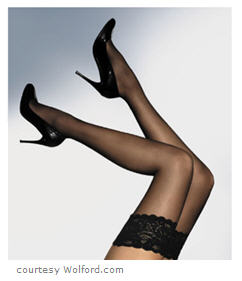 For now, I can paint the gray, gloss my lips, line my eyes and I’m done. I can crank up the bounce in my step – especially in hot heels – in order to maintainsome visibility as a woman. But none of this changes the fact of my age. It doesn’t change the perceptionof who I am when someone knows my age, which may have little to do with the reality of who I am as a person, or the life I lead.
For now, I can paint the gray, gloss my lips, line my eyes and I’m done. I can crank up the bounce in my step – especially in hot heels – in order to maintainsome visibility as a woman. But none of this changes the fact of my age. It doesn’t change the perceptionof who I am when someone knows my age, which may have little to do with the reality of who I am as a person, or the life I lead.
All of which is to say – it’s the assumptions and misconceptions that anger me. I find them absurd. I consider them dismissive. We are individuals. We age differently. And we ought to be allowed to approach the aging process accordingly.
And yes, there is a sense of loss – for some of us, it’s loss when we can no longer bear children, loss that we don’t appear or feel as “perky” as we once did, sorrow as we come to accept certain physical limitations or simply additional maintenance. Many women refuse to speak of the sadness, to grieve aspects of their younger selves, as though to do so is to admit some terrible truth.
I say – to hell with that!
Aging is a mixed bag, but it’s also more of the same – the same joy and challenge in meeting life as it is, the same excitement and risk in chasing your dreams, the same sweetness in finding love, mischief, humor, beauty.
Why Women Lie About Their Age
Do I lie about my age?
You bet. When it suits me. But more than that, I do so when it’s a necessity.
A necessity for getting work. A necessity for being seen as “valuable” – regardless of how I see myself. A necessity in the dating world, if you find yourself widowed or divorced.
Do I long for a culture in which age would be viewed as one more interesting fact – of no particular importance except perhaps to your physician?
Believe it.
So tell me. Do you lie about your age?
I bet you would – in the right circumstances. To get a job, and keep it. To have a shot at a few dates, and not be discarded as a viable potential “candidate” for a relationship.
Look Around. Age Estimates?
I’m an older mother, though this is no longer unusual. I gave birth in my mid-late thirties, and strangely, having kids older has kept me young in some ways, and aged me in others.
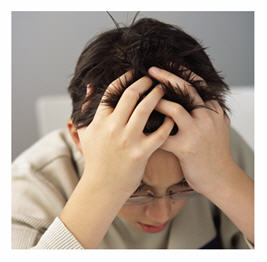 There are advantages in terms of experience and patience. There are disadvantages – not so much when dealing with babies and toddlers, butmidlife motherhood when kids are fighting? Going through your own hormonal changes as teenagers are bouncing around inside their bodies?
There are advantages in terms of experience and patience. There are disadvantages – not so much when dealing with babies and toddlers, butmidlife motherhood when kids are fighting? Going through your own hormonal changes as teenagers are bouncing around inside their bodies?
Sound proof the walls!
Thinking back to my childhood, I recall family members of all ages at social gatherings – intermingling and joining in the discussion. When I’ve lived in Europe or visited friends, the parties I attended included 20-somethings through 80-somethings. To me, this seemsnormal.
Consider this. Watching old movies from the 1940s and 1950s, note the generational mix in scenes of night clubs, at concerts, around the dining table. You’ll observe everyone from 20-something through middle age to “older” people (sixties? seventies?) all socializing. In films that offer business settings, while the women generally play a Girl Friday or wife, do note that you see men who are young, and plenty who older.
Today?
When’s the last time you socialized with people who were 20 years your senior? Look around your workplace. Is there anyone who appears to be over 50?
As I recall my last in-office contracting gig, there wasn’t a single manager or team member even close to 50 – out of a group of considerable size.
How Many Shades of Gray?
 Everyone may be talking about the latest book to make waves – all those shades of gray in intimate relationships. My preoccupation with shades of gray?
Everyone may be talking about the latest book to make waves – all those shades of gray in intimate relationships. My preoccupation with shades of gray?
There’s the expense of coloring my hair, which is an irritation. As my skin remains youthful, I paint the gray and pull off whatever age it is that I pull off… in person.
But the fact remains that a man with silver hair is perceived as distinguished, and a woman – with a few notable exceptions (Helen Mirren comes to mind) – is considered to be letting herself go,someone who has given up on dating, and consequently, a woman past a sex life.
Live Fully, Live Well
Am I taking to a bullhorn in my quiet neighborhood?
Hardly.
But that doesn’t mean that I don’t feel infuriated when I’m dismissed without a second look, when professional experience is ignored in favor of quick, cheap, and disposable, or when men my own age won’t give me a second glance – even before they’ve met me.
But I long for a little common sense. Aging is inevitable, and anti-aging propaganda is just that – propaganda. That doesn’t mean we don’t have choices in products and services, but what about a healthy glow as a mature adult? Doesn’t that sound refreshingly good to some of us?
On that note, I’ll pop my Over-The-Counter calcium with my salad and yogurt. I’ll remind myself to stay focused on the basics – continuing to nourish my mind with constant learning, and my body with healthy food in moderation. I’ll attempt as much sleep as I can manage (tougher for me), and daily walking, which is all about discipline.
Senior Sex and Sensibility?
Jane Austen, move over. Sense and sensibility? Let’s go with sex and sensibility instead.Safe sex, of course.
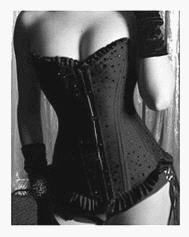 I’m not quite at “senior sex” just yet – not that I would know where to make that distinction. But sensuality and sexuality don’t evaporate as we grow older. At least, they don’t have to.
I’m not quite at “senior sex” just yet – not that I would know where to make that distinction. But sensuality and sexuality don’t evaporate as we grow older. At least, they don’t have to.
Do our intimate lives change? Sure. But my personal Rx involves a steady dose of sizzling sex with a man I love – with or without his shades of gray, or my own. And let’s face it – that’s a hell of a cardio. What could be better to soothe the Age Rage?
- Do you unknowingly discriminate against those over a certain age – before you’ve met them?
- Has your impression of what is “old” changed as you’ve grown older?
- When’s the last time you engaged in conversation with someone who is 70+ or 80+ years old?
- Are you worried about getting older, and fighting it tooth and nail?
Read More






